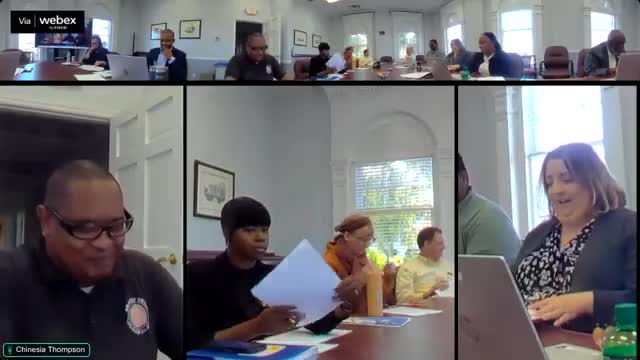Committee debates structured public-benefit criteria for nonprofit leases; staff to refine scoring and legal review
Get AI-powered insights, summaries, and transcripts
Subscribe
Summary
Athens-Clarke County staff presented a proposed framework to score nonprofit tenants for lease discounts, covering mission alignment, governance, financial stability, facility utilization, equity and reporting requirements. Committee provided detailed feedback and asked staff and the attorney’s office to refine criteria and weights.
Athens-Clarke County staff on Oct. 20 proposed a structured scoring framework to evaluate nonprofit tenants seeking below-market leases, and the Government Operations Committee provided detailed feedback while requesting legal review and a refined proposal at a future meeting.
Staff presented a scoring matrix that would evaluate nonprofit applicants across several categories on a 0–5 scale and convert those scores into tiers that could guide lease-rate adjustments or discounts. The objective, staff said, is transparency, fairness and alignment with the county’s strategic plan.
Interim Central Services Director James Alexander described seven topic areas staff proposed: legal and compliance verification; mission alignment; governance (board functionality and bylaws); performance measures and reporting; equity and inclusion; facility utilization; and financial stability and accountability. Staff said they would confirm federal tax-exempt status with the IRS and state registration with the Georgia Secretary of State as part of legal verification.
Staff emphasized objectivity and recommended that many evaluation questions be converted to binary or clearly defined metrics to reduce subjectivity when reviewers score agencies. Examples discussed by the committee included whether an organization has an active, functioning board of directors and current bylaws; whether outcomes are collected and reported publicly; utilization metrics for leased space (hours open, percent of available space used for mission-related activity); and measures of financial diversification and cash reserves.
On reporting, staff proposed that outcome and utilization data be incorporated into an annual report tied to the lease-renewal cycle. Counsel (referred to in the meeting as Austin) said a lease agreement could include a reporting requirement.
Committee members debated performance metrics and frequency. Some members preferred annual reporting tied to the lease renewal schedule; others suggested biannual or quarterly data collection for internal monitoring. Staff noted that federal grant reporting cycles vary and that data frequency should be practical for smaller organizations.
The committee also discussed financial thresholds and the county’s role as a funder. Staff asked whether the county should require a cap on the share of an organization’s revenue that comes from Athens-Clarke County sources; candidates discussed a draft threshold (examples in discussion mentioned 30% as illustrative only). Members cautioned that strict thresholds could disadvantage volunteer-run or small community organizations that lack diversified revenue streams. Staff said the scoring weights can be adjusted to avoid excluding smaller organizations outright.
Equity and inclusion criteria drew sustained discussion. Staff said some equity measures may be more subjective; the committee recommended collecting board and staff demographic summaries, outreach and language-access practices, and whether the organization partners with smaller neighborhood groups. The attorney’s office will review any equity metrics for legal constraints, including federal grant compatibility and gratuities/grant restriction concerns.
Historic or mission-specific facilities also arose: several members noted that occupying and maintaining historic properties provides a public benefit in itself and asked staff to develop special consideration or points for organizations that operate historic sites. One example raised was a long-standing theater tenant for whom committee members suggested exploring a ground lease or other tailored arrangement; staff said the attorney’s office and Central Services would research legal and contractual options.
Staff also proposed a maintenance-contribution category: organizations that assume certain building maintenance contracts (pest control, elevator or lift maintenance, HVAC, fire systems, cleaning) or share rental income from subleasing could receive lease offsets. The committee generally supported the idea of offsetting rent where tenants cover specified facility costs.
No final policy or binding threshold was adopted. The committee directed staff to refine the questionnaire, propose objective metrics or yes/no gates where possible, supply suggested weightings for the scoring matrix, and ask the attorney’s office to provide guidance on gift/gratuity and equity-related legal questions. Staff said they would return with a revised draft at a future meeting.
The discussion opened with a history of the county’s unified leasing policy, originally enacted in 2019 and revisited periodically; staff said the structured public-benefit scoring was requested to increase transparency and mitigate inconsistency in negotiated leases.
